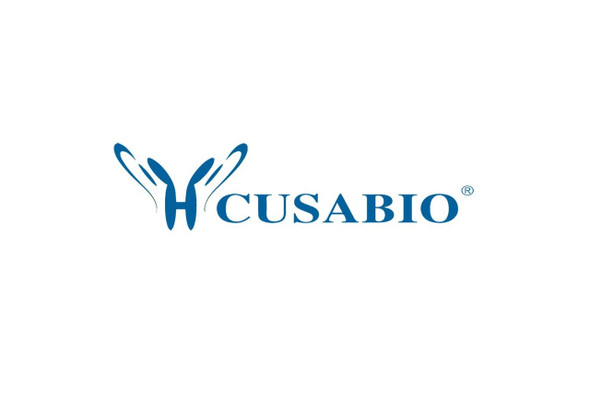Cusabio Lassa virus Recombinants
Recombinant Lassa virus Nucleoprotein (N) | CSB-EP318401LNPe1
- SKU:
- CSB-EP318401LNPe1
- Availability:
- 3 - 7 Working Days
Description
Recombinant Lassa virus Nucleoprotein (N) | CSB-EP318401LNPe1 | Cusabio
Alternative Name(s): Nucleocapsid protein Protein N
Gene Names: N
Research Areas: Microbiology
Organism: Lassa virus (strain Mouse/Sierra Leone/Josiah/1976) (LASV)
AA Sequence: MSASKEIKSFLWTQSLRRELSGYCSNIKLQVVKDAQALLHGLDFSEVSNVQRLMRKERRDDNDLKRLRDLNQAVNNLVELKSTQQKSILRVGTLTSDDLLILAADLEKLKSKVIRTERPLSAGVYMGNLSSQQLDQRRALLNMIGMSGGNQGARAGRDGVVRVWDVKNAELLNNQFGTMPSLTLACLTKQGQVDLNDAVQALTDLGLIYTAKYPNTSDLDRLTQSHPILNMIDTKKSSLNISGYNFSLGAAVKAGACMLDGGNMLETIKVSPQTMDGILKSILKVKKALGMFISDTPGERNPYENILYKICLSGDGWPYIASRTSITGRAWENTVVDLESDGKPQKADSNNSSKSLQSAGFTAGLTYSQLMTLKDAMLQLDPNAKTWMDIEGRPEDPVEIALYQPSSGCYIHFFREPTDLKQFKQDAKYSHGIDVTDLFATQPGLTSAVIDALPRNMVITCQGSDDIRKLLESQGRKDIKLIDIALSKTDSRKYENAVWDQYKDLCHMHTGVVVEKKKRGGKEEITPHCALMDCIMFDAAVSGGLNTSVLRAVLPRDMVFRTSTPRVVL
Source: E.coli
Tag Info: Tag-Free
Expression Region: 1-569aa
Sequence Info: Full Length
MW: 63 kDa
Purity: Greater than 85% as determined by SDS-PAGE.
Relevance: Encapsidates the genome, protecting it from nucleases. The encapsidated genomic RNA is termed the nucleocapsid (NC). Serves as template for viral transcription and replication. The increased presence of protein N in host cell does not seem to trigger the switch from transcription to replication as observed in other negative strain RNA viruses. Disables the host innate defense by interfering with beta interferon (IFNB) production through the inhibition of host IRF3 phosphorylation and activation by host IKBKE. Through the interaction with host IKBKE, strongly inhibits the phosphorylation and nuclear translocation of IRF3, a protein involved in IFN activation pathway, leading to the inhibition of IFNB and IRF3-dependent promoters activation (By similarity).
Reference: "Nucleotide sequence of the Lassa virus (Josiah strain) S genome RNA and amino acid sequence comparison of the N and GPC proteins to other arenaviruses."Auperin D.D., McCormick J.B.Virology 168:421-425(1989)
Storage: The shelf life is related to many factors, storage state, buffer ingredients, storage temperature and the stability of the protein itself. Generally, the shelf life of liquid form is 6 months at -20?/-80?. The shelf life of lyophilized form is 12 months at -20?/-80?.
Notes: Repeated freezing and thawing is not recommended. Store working aliquots at 4? for up to one week.
Function: Encapsidates the genome, protecting it from nucleases. The encapsidated genomic RNA is termed the nucleocapsid (NC). Serves as template for viral transcription and replication. The increased presence of protein N in host cell does not seem to trigger the switch from transcription to replication as observed in other negative strain RNA viruses. Disables the host innate defense by interfering with beta interferon (IFNB) production through the inhibition of host IRF3 phosphorylation and activation by host IKBKE. Through the interaction with host IKBKE, strongly inhibits the phosphorylation and nuclear translocation of IRF3, a protein involved in IFN activation pathway, leading to the inhibition of IFNB and IRF3-dependent promoters activation (By similarity).
Involvement in disease:
Subcellular Location: Virion, Host cytoplasm
Protein Families: Arenaviridae nucleocapsid protein family
Tissue Specificity:
Paythway:
Form: Liquid or Lyophilized powder
Buffer: If the delivery form is liquid, the default storage buffer is Tris/PBS-based buffer, 5%-50% glycerol. If the delivery form is lyophilized powder, the buffer before lyophilization is Tris/PBS-based buffer, 6% Trehalose, pH 8.0.
Reconstitution: We recommend that this vial be briefly centrifuged prior to opening to bring the contents to the bottom. Please reconstitute protein in deionized sterile water to a concentration of 0.1-1.0 mg/mL.We recommend to add 5-50% of glycerol (final concentration) and aliquot for long-term storage at -20?/-80?. Our default final concentration of glycerol is 50%. Customers could use it as reference.
Uniprot ID: P13699
HGNC Database Link: N/A
UniGene Database Link: N/A
KEGG Database Link: KEGG
STRING Database Link: N/A
OMIM Database Link: N/A









